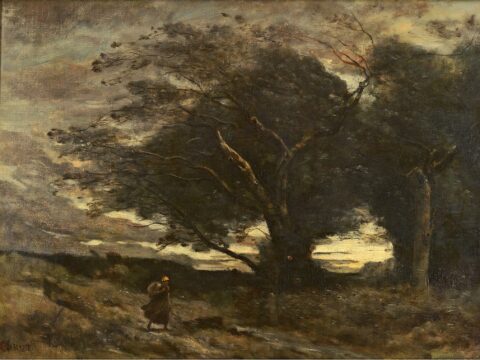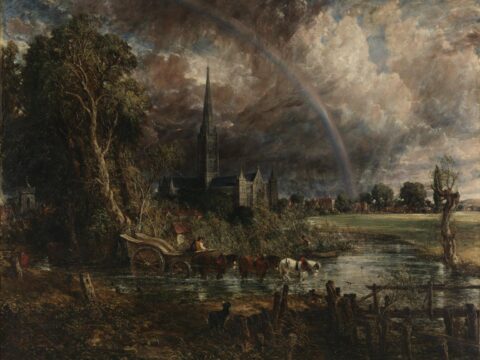
There are two sorts of persons who will find it harder to repent than others:
(1) Those who have sat a great while under the ministry of God’s ordinances but grow no better. The earth which drinks in the rain, yet ‘beareth thorns and briars, is nigh unto cursing’ (Heb. 6.8). There is little hope of the metal which has lain long in the fire but is not melted and refined. When God has sent his ministers one after another, exhorting and persuading men to leave their sins, but they settle upon the lees of formality and can sit and sleep under a sermon, it will be hard for these ever to be brought to repentance. They may fear lest Christ should say to them as once he said to the fig-tree, ‘Never fruit grow on thee more’ (Matt. 21.19).
(2) Those who have sinned frequently against the convictions of the word, the checks of conscience, and the motions of the Spirit. Conscience has stood as the angel with a flaming sword in its hand. It has said, Do not this great evil, but sinners regard not the voice of conscience, but march on resolvedly under the devil’s colours. These will not find it easy to repent: ‘They are of those that rebel against the light’ (Job 24.13). It is one thing to sin for want of light and another thing to sin against light. Here the unpardonable sin takes its rise. Men begin by sinning against the light of conscience, and proceed gradually to despiting the Spirit of grace.
It serves sharply to reprove all unrepenting sinners whose hearts seem to be hewn out of a rock and are like the stony ground in the parable which lacked moisture. This disease, I fear, is epidemical: ‘No man repented him of his wickedness’ (Jer. 8.6). Men’s hearts are marbled into hardness: ‘they made their hearts as an adamant stone’ (Zech. 7.12). They are not at all dissolved into a penitential frame. It is a received opinion that witches never weep. I am sure that those who have no grief for sin are spiritually bewitched by Satan. We read that when Christ came to Jerusalem he ‘upbraided the cities because they repented not’ (Matt. 11.20). And may he not upbraid many now for their impenitence? Though God’s heart be broken with their sins, yet their hearts are not broken. They say, as Israel did, ‘I have loved strangers, and after them will I go’ (Jer. 2.25). The justice of God, like the angel, stands with a drawn sword in its hand, ready to strike, but sinners have not eyes as good as those of Balaam’s ass to see the sword. God smites on men’s backs, but they do not, as Ephraim did, smite upon their thigh (Jer. 31.19). It was a sad complaint the prophet took up: ‘thou hast stricken them, but they have not grieved’ (Jer. 5.3). That is surely reprobate silver which contracts hardness in the furnace. ‘In the time of his distress did he trespass yet more against the Lord: this is that king Ahaz’ (2 Chron. 28.22). A hard heart is a receptacle for Satan. As God has two places he dwells in, heaven and a humble heart, so the devil has two places he dwells in, hell and a hard heart. It is not falling into water that drowns, but lying in it. It is not falling into sin that damns, but lying in it without repentance: ‘having their conscience seared with a hot iron’ (1 Tim. 4.2). Hardness of heart results at last in the conscience being seared. Men have silenced their consciences, and God has seared them. And now he lets them sin and does not punish — ‘Why should ye be stricken any more?‘ (Isa. 1.5) — as a father gives over correcting a child whom he intends to disinherit.
Thomas Watson. The Doctrine of Repentance.



